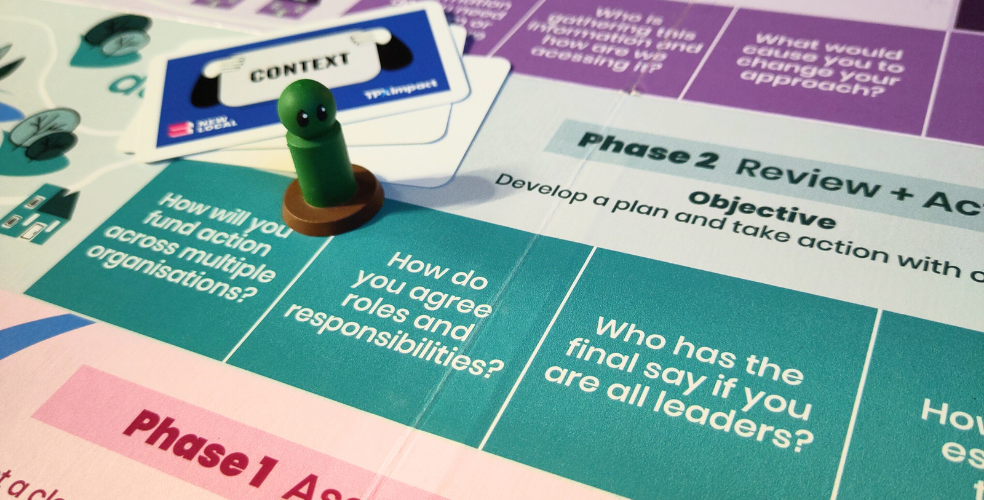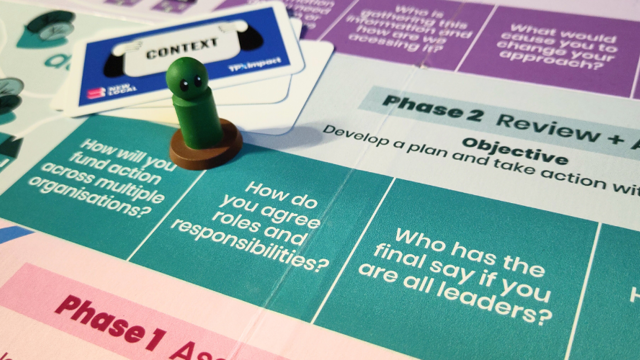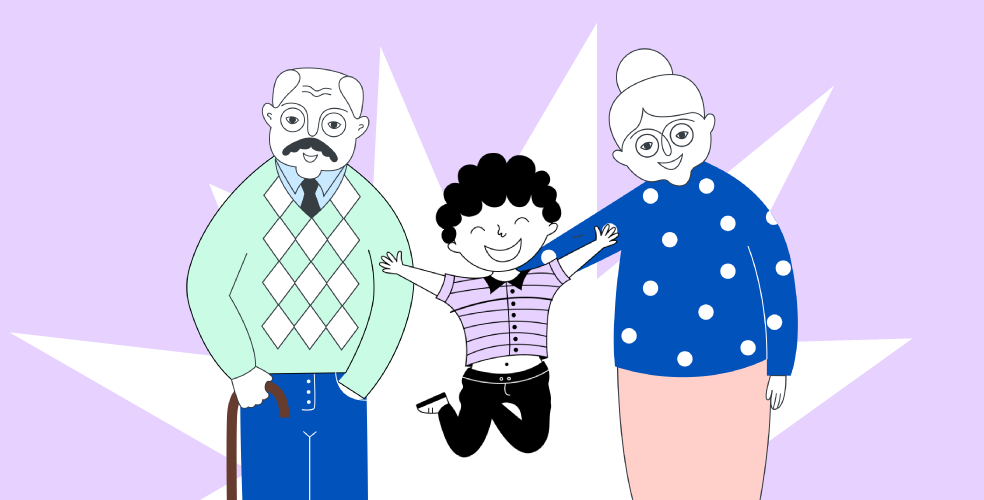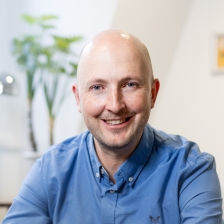If your ambition is to improve how services already work then this is more straightforward. But, if your ambition is to start to join up different user journeys and interactions, then there’s a bigger challenge and opportunity for service transformation that can create more value for users and your organisation.
Introducing life events
Life events are an approach to designing services to meet people’s needs.
Think of these as trigger points for a user journey or the underlying problem that someone is trying to solve. They are the reason that people interact with or contact your organisation.
When we’re designing services, this is where things start to get interesting. Life events are a different way of organising how services work. They’re a way that user journeys, tasks and different types of interactions can be joined up, including journeys and interactions that sit across different partners and organisations.
As Ale explained when launching the LocalGov Patterns library:
"…once we start to identify patterns, we can also challenge them. For instance, should services be organised in a way that begins with a life event, such as ‘Having a baby’, ‘Getting a job’, ‘Getting married’ or ‘Retiring’? Mapping and exploring patterns can also give us the opportunity to rethink services for more ambitious, system-wide conversations."
Working from user needs
To understand life events, you need to do user research. With research, we can build an understanding of what actually happens in people’s lives. It will help you understand the context, circumstances and what people do, think and feel in different situations.
Understanding services makes you focus on understanding people and the role your organisation plays in their lives. This doesn’t only start with user needs, but with the emotional needs that people have.
"Emotional needs are the result of someone facing a situation in their lives. It might make them feel stressed or anxious. They might need peace of mind or to feel confident about something."
Emotional needs are less about an interaction with an organisation and much more about the things that are happening in a person’s life. It’s the difference between retirement (a big life event) and the more practical set of needs people have around savings or getting a State Pension (interaction with the Government) to be able to retire.
The future role your organisation will play as part of a wider system
When you start to ask questions about the types of life events services belong to, it becomes much harder to fall back into existing organisation structures that determine how services are currently organised.
This focus can then help us think through the role organisations play in a wider system such as housing, employment or health and care. It’s an opportunity to have more ambitious, system-wide conversations about how to meet different needs across different organisations and as part of a community.
Examples of life events
In our recent work with Essex County Council to map around 150 transactional services, we’ve been working with this list of life events:
- accessing further education
- become a British citizen
- being/becoming a carer
- being/becoming disabled
- finding a job
- getting married/civil partnership
- going through bereavement
- having children
- moving somewhere
- retiring
- starting/attending school
This list is still in progress, and is now shared and is being updated as part of the LocalGov Patterns library (we also worked from this provisional list building on this LGA work).
Designing future service models with life events
To reiterate, focusing on services and service patterns is a good way of shaping wider conversations around how you design and deliver services in your organisation. And, how you work with partners and other organisations.
The key question to consider is: how ambitious are you aiming to be as an organisation?
If you’re looking to deliver systemic change and design for service transformation, then the challenge will be dealing with complex service areas. This means considering underlying ways of working, technology requirements, operational capabilities, and how to deliver the best possible set of outcomes and user experiences.
You can use life events as an approach to how you organise your services and for working with higher levels of complexity.
For example, if you take related services that are part of a life event, like ‘having a baby’, could you design a new set of user journeys to create a better set of outcomes or improved experience for people in your local area? Is it then possible to change how organisations and supporting partners work together to share data and build new capabilities that could create more efficient services that scale with the flexibility to work for everyone?
This is where patterns and standards become powerful at showing and sharing what works. Whether it’s documenting best practices, processes, capabilities or digital tools and technologies, we can enable others to benefit outside of a single organisation or service area.
Mapping and understanding services should not only be about service improvement. Best practice should lead to conversations about how we can transform services.
With a better understanding of our services, we can start to prioritise and then challenge the way we organise and design services, considering the broader context of how we support people through different types of situations in their lives.
It would be great to hear more about your experiences of designing services. You can view work from Essex County Council and other examples of services in our LocalGov Patterns library — a nationwide project to build a shared library of service patterns for local government. We’re looking for input from as many local authorities as possible to build up our initial knowledge base so please get involved.

A game-changing approach to leadership
Radical Leaders: The Game! uses real-world crisis scenarios to challenge local government leaders, fostering collaboration, agility, & community focus.
Read moreOur recent insights
Transformation is for everyone. We love sharing our thoughts, approaches, learning and research all gained from the work we do.

A game-changing approach to leadership
Radical Leaders: The Game! uses real-world crisis scenarios to challenge local government leaders, fostering collaboration, agility, & community focus.
Read more
Designing and developing FamilyStory
Focusing first on child protection, FamilyStory is transforming the way local authorities approach technology for children’s social care.
Read more
8 lenses for service transformation
By thinking about the specific parts of a system or service, and how they relate to one another, we can begin to understand the interactions between them and identify opportunities for change.
Read more

